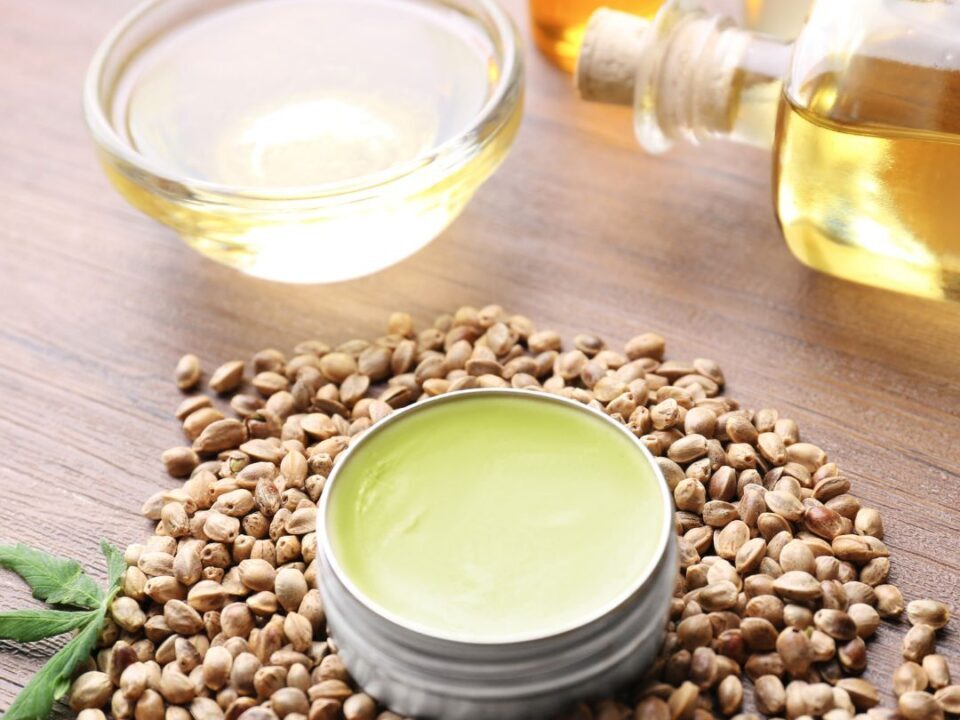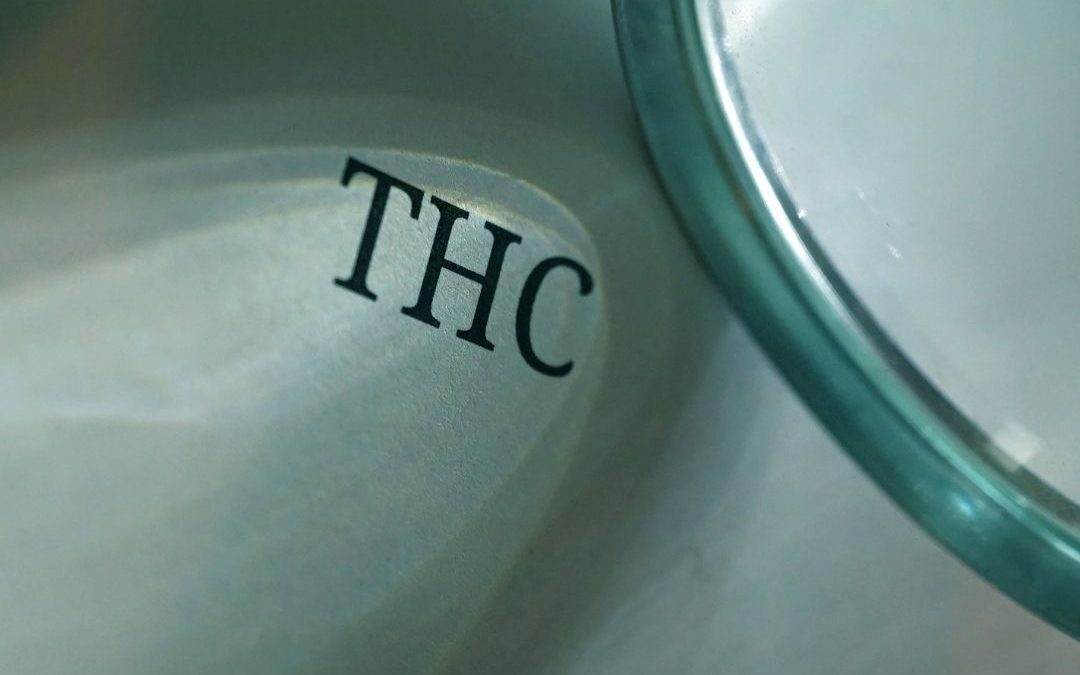
What is Delta 8 THC?
Delta 8 vs. Delta 9 THC – Delta 8 THC is a cannabis compound that has rose in popularity due to its relation and similarity to Delta 9 THC. Delta 8 THC is being marketed as a weed-light or the less psychoactive version of Delta 9, (regular marijuana). It is a compound that reacts with the endocannabinoid system to create calming, mildly euphoric responses in the brain and body.
Delta 8 THC is short for Delta 8 Tetrahydrocannabinoid. This cannabinoid can be found in hemp or the cannabis plant (marijuana plant). Almost all of the Delta 8 products and CBD products on the market today are manufactured solely from the hemp plant. Reason-being, all products that are hemp-derived were made federally legal by the 2018 Farm Bill Act. The passage of the 2018 Farm Bill has led to the extreme popularity of Delta 8, CBD, and hemp products over the last few years. Although Delta 8 is federally recognized under the 2018 Farm Bill, some states have passed laws to ban its use entirely. We will discuss legalities in a later section.
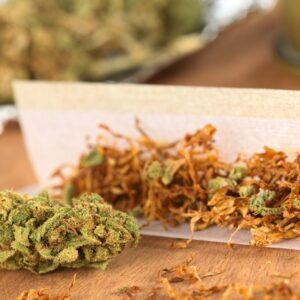 What is Delta 9 THC and how is it similar to Delta 8?
What is Delta 9 THC and how is it similar to Delta 8?
Delta 9 THC is the cannabinoid molecule found in the hemp plant or the marijuana plant. It is the most recognized compound found in marijuana. Large amounts of THC are found in the majority of all cannabis strains. It is known for its psychoactive or euphoric effects. Delta 9 THC is the ingredient best know for the euphoric or intoxicating “high” feeling you get while using a premium Delta 9 or marijuana product.
The most common similarities between Delta 8 and Delta 9 THC are their chemical structures, makeup, and their names, but most importantly how they have common effects on the body’s endocannabinoid system.
Delta 8 and Delta 9 products both give the consumer a similar experience, because they are close to the same chemical makeup. Their use both results in euphoric feelings, less anxious thoughts, promotes sleep, and aids in digestive issues.
What makes Delta 8 and Delta 9 THC different?
These specific Delta THC strands are chemically different because of the placement of a double bond on their chemical makeup. Both of these cannabinoids have a chain of carbon atoms. Delta 9 has a double bond on the 9th chain, where Delta 8 has a double bond on the 8th chain of the carbon atom. These chemical bonds form very differently in the body’s endocannabinoid system. The location of where Delta 8 bonds are what is thought to be the reason Delta 8 THC is much less potent than its Delta 9 relative. Thus making it a lesser, more light kind of high or euphoric feeling.
Will Delta 8 or Delta 9 get you high?
Delta 8 THC will in fact get you high, just not on the same spectrum as Delta 9. Many consumers prefer Delta 8 products because they are not as strong as the common marijuana strain- Delta 9. For those consumers living in states that have not yet made Delta 9 legal, Delta 8 THC may be a considerable and legal option for them to experience the similar effects of marijuana or Delta 9 THC.
Some consumers have described their experience using Delta 8 THC as a lighter, more energized high. Other users have described their experience as euphoric, uplifting, having happy thoughts and feelings, and even received some degree of relief from minor discomforts.
Consumers of Delta 9 THC report many of the same user experiences and effects such as euphoria, mood-lifting, happy thoughts, and they too received relief from feelings of discomforts. However, their experience with Delta 9 THC is more extreme and taken to the next level of relief. Delta 8 and Delta 9 are thought to aid in the relief of sleep disorders, digestive issues, and relief of minor discomforts.
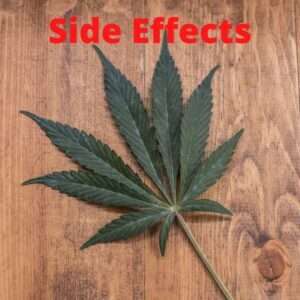 What are the side effects of using Delta 8 or Delta 9 THC?
What are the side effects of using Delta 8 or Delta 9 THC?
Most of the side effects for Delta 8 and Delta 9 THC are very similar. Both can make your eyes and mouth feel very dry. Better known as “cotton mouth” and red eyes. This is a temporary side effect and usually only lasts while you have the intoxicating feeling.
Delta 9 THC may cause more intense side effects. Delta 9 THC can increase anxious thoughts. This can lead to feelings of panic and paranoia, disconnected thoughts, and even delusions or hallucinations. Delta 9 can also cause impaired performance or impaired judgment making the most simple task difficult, or even a detriment to your health. The impairments caused by Delta 9 can also affect speech, memory, and behavior. Delta 9 can also cause tiredness, dizziness, and headaches.
The use of Delta 8 can mimic the same side effects of Delta 9, but with a less intense effect. Delta 8 can affect the way you make judgments but to a lesser degree than Delta 9. Delta 8 can also cause a change in vision, headaches, and brain fog.
Neither Delta 8 nor Delta 9 should be used when you are driving or planning on driving a vehicle or operating heavy machinery. The intoxicating effects of both Delta 8 and Delta 9 THC can be dangerous if caution is not used.
Is Delta 8 or Delta 9 THC Legal?
Delta 8 THC was in fact made legal by the 2018 Farm Bill Act, with the exception that it is illegal in some states. The 2018 Farm Bill removed hemp and derivatives of the cannabis plant with extremely low content of Delta 9 THC(no more than 0.3% THC) from the definition of marijuana, in the controlled substance act. The 2018 Farm Bill Act also preserved the FDA’s authority over hemp and cannabis products. This meaning any and all hemp or cannabis products must meet all FDA standards and requirements.
Since Delta 8 THC has the same type of effects as regular THC, several states have banned its use or made it illegal to sell, purchase, or possess Delta 8 THC. These states include Alaska, Arizona, Arkansas, Colorado, Deleware, Idaho, Iowa, Mississippi, Montana, Rhode Island, New York, and Utah. All other states allow the use, but keep in mind that this is subject to change if state legislations determine that it should be classified as a controlled substance.
Delta 9 THC remains illegal at the federal level, however, some state legislators have new laws and allowances for medical and recreational marijuana.
Many states require some form of license to purchase medicinal or recreational Delta 9 THC, Marijuana. They have laws about how much you can legally obtain, possess on your person, or in some states even grow at your own home.
Delta 9 THC remains illegal in Alaska, Arizona, Arkansas, Colorado, Delaware, Idaho, Iowa, Kentucky, Mississippi, Michigan, Montana, New York, Nevada, North Carolina, Rhode Island, Vermont, and Utah. Other states’ laws vary whether or not medicinal or recreational Delta 9 or marijuana are legal. Some states only host medicinal marijuana, While 18 states have decriminalized marijuana, These states do have laws about possession, distribution, and personal cultivation. Recreational use of Delta 9 THC or marijuana is slowly seeking out victories by decriminalization on a state-by-state basis.
These legislations and laws vary from state, and it is best to check specifically in the state you live in for laws concerning all types of cannabis products.
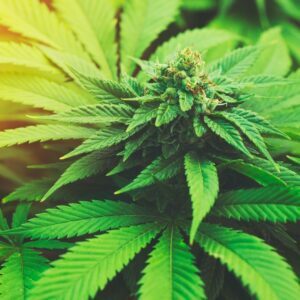 Does Delta 8 or Delta 9 host more benefits?
Does Delta 8 or Delta 9 host more benefits?
Delta 8 vs. Delta 9 – They both offer several of the same benefits because their chemical makeup is so similar. However, they have their differences as well. Some studies have shown that because Delta 8 THC has fewer psychoactive effects, it may be more beneficial.
Delta 8 is sought out for anxious thoughts and feelings. It provides more of a calming effect than Delta 9 THC. Delta 9 has been thought to contribute to anxious feelings because of its much more potent psychoactive effects that can lead to paranoia.
Delta 8 has more of an impact on increasing appetite, due to the way it interacts with the body’s endocannabinoid system. Although, many consumers have reported that Delta 8 and Delta 9 have a similar effect on combatting nausea and other digestive issues.
Many studies have also shown Delta 9 is more effective in reducing discomfort levels. Considering Delta 8 is much less potent than Delta 9, it is thought to be less effective in reducing discomfort levels unless it is taken in much higher doses.
Delta 8 THC binds on CB1 receptors in the body endocannabinoid system in a manner that helps boost a person’s metabolism. The metabolism boost, plus the aid in digestive issues can lead to weight management. Delta 8 can aid in making one hungry, but it also helps to metabolize and process the food in such a manner to help lose or help manage weight.
Delta 8 vs. Delta 9 In Conclusion
Both Delta 8 and Delta 9 THC have many similarities and differences. Delta 8 THC is the much less potent version of Delta 9, yet it has just as many health benefits or more than Delta 9 THC. Delta 8 THC gives you a light high without the extreme euphoric effects on the mind that Delta 9 THC can cause. There are many products to chose from so always do your research as to what suits your needs, gummies, tinctures, sprays, or other forms.
You should always check your state laws about either or both products before you decide to make a purchase, whether it is in a store or an online purchase. Delta 8 THC is Federally legal, but some states do have laws against possession and use.
Delta 9 THC or Marijuana is illegal in some states. While in other states it is legal either only medicinally or recreationally, or both. In those states that it is legal there may also be stipulations and laws as to how much you can carry on your person, plus other laws regarding possession and use.
Always remember to use caution when you are using or plan to use either a Delta 8 or Delta 9 THC Product. Both of these products can alter your judgment, especially while driving or operating machinery.



